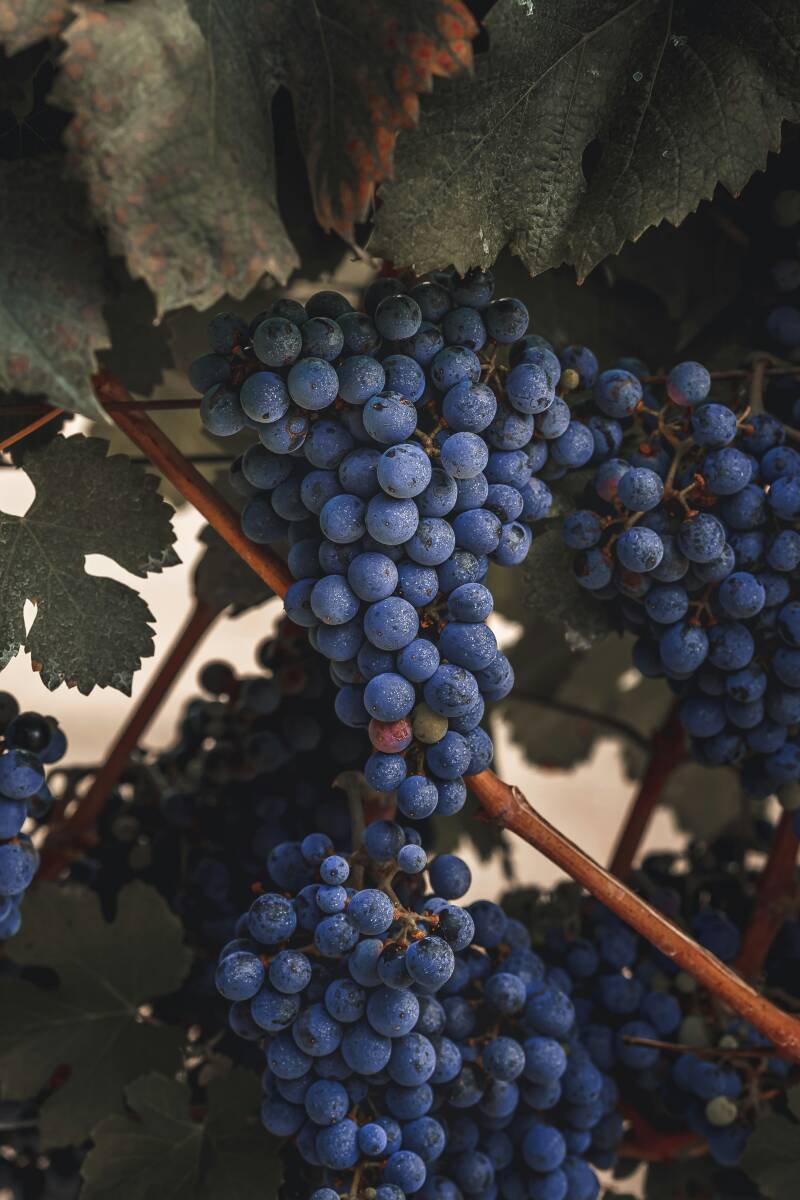
Act I: The Existential Dread of Being Perceived
There’s something that’s been on my mind lately: perception. Specifically, how much I hate it. I know this is dramatic, but stick with me.
Being perceived feels like being flattened. Labeled. Like someone took one look at me, possibly mid-sip, definitely mid-story, and decided, “Yep. Got her all figured out.”
The worst part? They usually haven’t even heard the full story about the time I almost got a black eye trying to open a champagne bottle. (I won. But at what cost?)
Now while I say this, I also know perception is hard to escape when you’re, well… me.
I wildly put myself out there. The life of the party. First to volunteer for karaoke. Last to leave. Will happily tell my life's story to a stranger. Self-declared best (or overdressed) to any event. And let’s not forget... I write a wine blog. I have willingly offered myself up for perception. Loudly.
But here's the thing: we're all more complicated than we look.
Which brings me to wine.
Act II: Wine Gets Labeled Too—Literally and Figuratively
People love to put wine into neat little boxes, both figuratively and literally.
Sweet or dry. Red or white. Cheap or fancy. “Beginner” vs. “expert”.
As if one label, one grape, or country can tell you everything you need to know.
Spoiler: It can’t.
So let’s debunk some of the most misunderstood grapes in the wine world, shall we?
Riesling: Am I Fluent in German, Now?
Riesling is the classic victim of perception. People see it and assume it’s going to taste like a melted peach ring soaked in regret. But Riesling is one of the most versatile grapes in the game.
It can be sweet, yes. But it can also be dry.
German Rieslings do come with labels that try to help you out:
-
Trocken = dry
-
Halbtrocken = off-dry
-
Spätlese = late-harvest (i.e., usually sweeter)
But if you don’t know what those mean (or don’t want to Google mid-grocery aisle), it’s easy to assume all Riesling is just flat-out sweet. And that’s a shame, because dry Riesling is chef’s kiss with spicy food, summer days, and pretending you’re an expert while secretly Googling “What does Trockenbeerenauslese mean?”
Chardonnay: She’s Not Who You Think She Is
Poor Chardonnay. She’s been through it.
Somewhere along the line, she got branded as that one wine your aunt drinks at brunch while telling you about her Reiki practice. But Chardonnay is one of the most adaptable grapes out there.
-
In Chablis, France, it’s crisp, steely, and minerally.
-
In California, it can be rich and oaky, or lean and citrusy—depending on how it’s made.
-
In New Zealand, it often walks the line: fresh and zingy with just a hint of oak flirtation.
Chardonnay isn’t one note. She’s a whole playlist. And if you write her off based on one overly buttery bottle from 2008, I beg you to try again.
Merlot: The Wine You Didn’t Give a Chance
Merlot walked so Pinot Noir could run. And then somewhere along the line we collectively booted her to the side after watching Sideways.
I've often heard people say “I don’t like Merlot” with the same energy as “I’m not like other girls.” But often, they’re reacting to a bad, mass-produced bottle that probably really did taste like ass.
A good Merlot, however?
Lush. Velvety. Dark fruit and soft tannins. Like a hug in liquid form.
Boxed Wine: More Than Just University Memories
Let’s talk about the elephant in the pantry: boxed wine.
Yes, it used to be the punchline. But these days? Boxed wine is out here doing the Lord’s work:
-
Lower carbon footprint
-
Less packaging waste
-
Keeps fresh for weeks
-
Doesn’t judge you when you go back for your third glass and call it “topping off”
Some quality producers are putting excellent juice in boxes, and if you’re skipping it because of your university flashbacks, it’s time for a reframe.
It's like a juice box, but for grownups with feelings.


Act III: Wine, Like People, Deserves a Second Look
So what’s the point here?
Wine—like people—is complex. Nuanced. Evolving.
And most of the time, our snap judgments are just that: snap. Not rooted in knowledge, just a gut reaction dressed up in confidence.
So if you find yourself saying:
-
“I don’t like Chardonnay”
-
“Merlot isn’t for me”
-
“Boxed wine is trash”
-
Or, god forbid, “Riesling is too sweet”
I’d invite you to pause.
Ask yourself, was it the wine you didn’t like…
Or the story you thought you already knew?
The Good 'Ol Final Sip
I’m learning that I don’t actually hate being perceived. I just hate being misunderstood.
Wine is the same. It doesn’t need you to like it. But it would really appreciate it if you stopped reducing it to one experience, one label, or one unlucky pour.
So try the dry Riesling. Revisit Chardonnay. Give Merlot another chance. And, for the love of grapes, stop downing boxed wine until you’ve tried one in the last five years.
Because honestly? If you’re still judging a wine before you taste it, you might be missing out on your new favorite thing.
And if you are judging me?
At least let me pour you a glass first.
Cheers to second chances and first impressions that prove us wrong.

